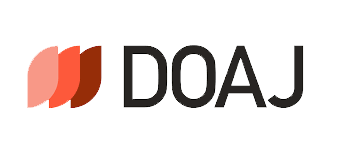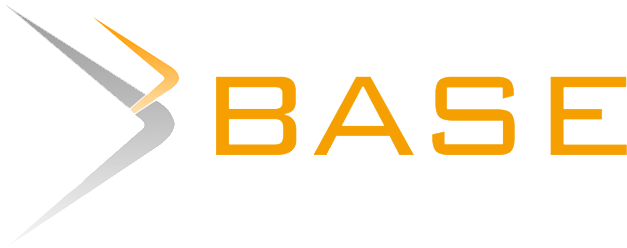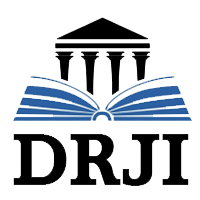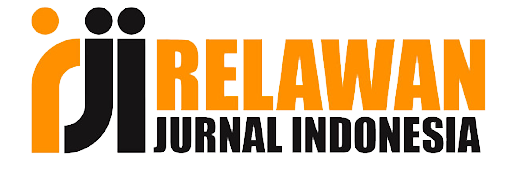Keterkaitan Personal Growth Initiative dan Harapan dengan Adaptabilitas Karir pada Mahasiswa Vokasi
Abstract
This study aims determine the relationship between personal growth initiative and hope with career adaptability in vocational students in Indonesia. The participants in this study are vocational students in Indonesia. The data collection technique used in this study is a simple random sampling technique with data collection instruments including career adaptability scales, personal growth initiative scales, and hope scales The result of this study showed a correlation coefficient of 0.769 with a p of 0.000 (p<0.01) which showed a very significant relationship between personal growth initiative and hope with career adaptability in vocational students, with an effective contribution of 59.1%, thus the major hypothesis in this study was accepted. The result of the correlation coefficient between personal growth initiative and career adaptability were obtained 0.734 with a p of 0.000 (p<0.01), which shows that there is a very significant positive relationship between personal growth initiative and career adaptability, thus the first minor hypothesis proposed in this study accepted. While the correlation coefficient between hope and career adaptability shows an r value of 0.581 with a p of 0.000 (p<0.01), this shows that there is a very significant positive relationship between hope and career adaptability, thus the second minor hypothesis in this study accepted.
Penelitian ini bertujuan untuk mengetahui hubungan personal growth initiative dan harapan dengan adaptabilitas karir pada mahasiswa vokasi di Indonesia. Partisipan dalam penelitian ini merupakan mahasiswa vokasi di Indonesia. Teknik pengambilan data yang digunakan dalam penelitian ini adalah teknik simple random sampling dengan instrumen pengumpulan data meliputi skala adaptabilitas karir, personal growth initiative, dan juga harapan. Hasil penelitian ini menunjukkan koefisien korelasi sebesar 0,769 dengan p sebesar 0,000 (p < 0,01) yang menunjukkan adanya hubungan yang sangat signifikan antara personal growth initaitive dan harapan dengan adaptabilitas karir pada mahasiswa vokasi, dengan sumbangan efektif 59,1%, dengan demikian hipotesis mayor dalam penelitian ini diterima. Hasil koefisien korelasi antara personal growth initiative dengan adaptabilitas karir diperoleh sebesar 0,734 dengan p sebesar 0,000 (p < 0,01), hal ini menunjukkan adanya hubungan positif yang sangat signifikan antara personal growth initiative dengan adaptabilitas karir, dengan demikian hipotesis minor pertama yang diajukan dalam penelitian ini diterima. Sementara itu koefisien korelasi antara harapan dengan adaptabilitas karir menunjukkan nilai r sebesar 0,581 dengan p sebesar 0,000 (p < 0,01), hal ini menunjukkan adanya hubungan positif yang sangat signifikan antara harapan dengan adaptabilitas karir, dengan demikian hipotesis minor kedua dalam penelitian ini diterima.
Keywords
Full Text:
PDFReferences
Anggraini, D., & Iswari, R. D. W. I. (2022). Optimisme dan adaptabilitas karir pada mahasiswa di era new normal. Jurnal Ilmiah Psikologi Mindset, 13(1), 79–88. https://doi.org/10.35814/mind%20set.v13i01.3313
Arfah, T., Ince, D., & Setiawan Bakar, P. (2019). Kontribusi kesadaran diri (self -awareness) dan harapan (hope) terhadap career adaptability mahasiswa. Al Ghazali International Journal of Educational Research, 2(1), 73–80. https://doi.org/10.24567/AIJER.V2I1.329
Ashton, M. W. (2013). Career adaptability in emerging adults: A foundation of personal growth. Texas Tech University.
Badan Pusat Statistik. (2023). Keadaan ketenagakerjaan Indonesia Agustus 2023. In Badan Pusat Statistik (Issue 8). https://www.bps.go.id/id/pressrelease/2023/11/06/2002/
Badan Pusat Statistik. (2024). Pengangguran terbuka menurut pendidikan tertinggi yang ditamatkan 1986 - 2024. https://www.bps.go.id/id/statistics-table/2/Njc0IzI=/
Beri, N., & Jain, M. (2016). Personal growth initiative among undergraduate students: influence of emotional selfefficacy and general wellbeing. Journal on Interdisciplinary Studies in Humanities, 8 (2), 43–55. http://dx.doi.org/10.21659/rupkatha.v8n2.05
Bocciardi, F., Caputo, A., Fregonese, C., Langher, V., & Sartori, R. (2017). Career adaptability as a strategic competence for career development: An exploratory study of its key predictors. European Journal of Training and Development, 41(1), 67–82. https://doi.org/10.1108/EJTD-07-2016-0049
Borowa, D., Kossakowska, M. M., Harmon, K. A., & Robitschek, C. (2020). Personal growth initiative’s relation to life meaning and satisfaction in a polish sample. Current Psychology, 39(5), 1648–1660. https://doi.org/10.1007/s12144-018-9862-2
Buyukgoze-Kavas, A. (2016). Predicting career adaptability from positive psychological traits. Career Development Quarterly, 64(2), 114–125. https://doi.org/10.1002/cdq.12045
Çankaya, E. M., & Dong, X. (2017). An examination of the relationship between social self-efficacy and personal growth initiative in international context. International Journal of Intercultural Relations, 61, 88–96. https://doi.org/10.1016/j.ijintrel.2017.10.001
De Freitas, C. P. P., Damásio, B. F., Tobo, P. R., Kamei, H. H., & Koller, S. H. (2016). Systematic review about personal growth initiative. Anales de Psicología, 32(3), 770. https://doi.org/10.6018/analesps.32.3.219101
Ding, Y., & Li, J. (2023). Risk perception of coronavirus disease 2019 and career adaptability among college students: The mediating effect of hope and sense of mastery. Frontiers in Psychology, 14, 1–10. https://doi.org/10.3389/fpsyg.2023.1210672
Gong, Z., Jiao, X., Zhang, M., Qu, Q., & Sun, B. (2022). Effects of personal growth initiative on occupational engagement of college students in the uncertain social context: A cross-lagged model and a moderated mediation model. Frontiers in Psychology, 13(September). https://doi.org/10.3389/fpsyg.2022.988737
Gregor, M. A., Weigold, I. K., Wolfe, G., Campbell-Halfaker, D., Martin-Fernandez, J., & Pino, H. V. G. Del. (2021). Positive predictors of career adaptability among diverse community college students. Journal of Career Assessment, 29(1), 115–128. https://doi.org/10.1177/1069072720932537
Hirschi, A. (2014). Hope as a resource for self-directed career management: investigating mediating effects on proactive career behaviors and life and job satisfaction. Journal of Happiness Studies, 15, 1495–1512. https://doi.org/10.1007/s10902-013-9488-x
Hirschi, A., Herrmann, A., & Keller, A. C. (2015). Career adaptivity, adaptability, and adapting: A conceptual and empirical investigation. Journal of Vocational Behavior, 87(April), 1–10. https://doi.org/10.1016/j.jvb.2014.11.008
Jia, Y., Hou, Z., & Shen, J. (2020). Adolescents’ future time perspective and career construction: Career adaptability as mediator and hope as moderator. Journal of Career Development, 20(10), 1–16. https://doi.org/10.1177/0894845320926579
Joo, B. K., Park, S., & Lee, S. (2020). Personal growth initiative: The effects of person–organization fit, work empowerment and authentic leadership. International Journal of Manpower, 42(3), 502–517. https://doi.org/10.1108/IJM-02-2020-0056
Korkmaz, O., & Önder, F. C. (2019). The relation between life goals and career adapt-abilities: An investigation of the mediating role of Hope. Egitim ve Bilim, 44(200), 59–76. https://doi.org/10.15390/EB.2019.8380
Malik, N. I., Yasin, G., & Shahzadi, H. (2013). Personal growth initiative and self esteem as predictors of academic achievement among students of technical training Institutes. Pakistan Journal of Social Sciences (PJSS), 33(2), 435–446. https://www.researchgate.net/publication/328233092
Mardiyati, B. D., & Yuniawati, R. (2015). Perbedaan adaptabilitas karir ditinjau dari jenis sekolah (SMA dan SMK). Jurnal Empathy, 3(1), 31–41. https://doi.org/10.12928/empathy.v3i1.3033
Maree, K. (2017). Psychology of career adaptability, employability and resilience. Psychology of Career Adaptability, Employability and Resilience. https://doi.org/10.1007/978-3-319-66954-0
Nisa, C. M., Sulistiani, W., & Aquarisnawati, P. (2022). Hubungan antara hardiness dengan adaptabilitas karir pada mahasiswa fakultas vokasi pelayaran di Universitas Hang Tuah Surabaya. Jurnal Psikologi Poseidon, 5(2), 18–32. https://doi.org/10.30649/jpp.v5i2.70
Othman, R., Kamal, N. M., Alias, N. E., Ismail, S., & Sahiq, A. N. M. (2018). Positive psychological traits and career adaptability among millennials. International Journal of Academic Research in Business and Social Sciences, 8(9), 1420–1433. https://doi.org/10.6007/ijarbss/v8-i9/4706
Panitia Kerja Pendidikan Vokasi Komisi X DPR RI. (2020). Laporan panitia kerja pendidikan vokasi Komisi X Dewan Perwakilan Rakyat Republik Indonesia.
Peterson, S. J., & Byron, K. (2008). Exploring the role of hope in job performance : Results from four studies. Journal of Oragizational Behavior, 29, 785–803. https://doi.org/10.1002/job
Rivera, M., Shapoval, V., & Medeiros, M. (2021). The relationship between career adaptability, hope, resilience, and life satisfaction for hospitality students in times of Covid-19. Journal of Hospitality, Leisure, Sport and Tourism Education, 29(October), 100344. https://doi.org/10.1016/j.jhlste.2021.100344
Robitschek, C., & Cook, S. W. (1999). The influence of personal growth initiative and coping styles on career exploration and vocational identity. Journal of Vocational Behavior, 54(1), 127–141. https://doi.org/10.1006/jvbe.1998.1650
Salim, R. I., & Livia, Y. (2021). Bertumbuh dan mendapat nilai bagus? peran personal growth initiative, motivasi ekstrinsik, dan prokrastinasi akademik. Jurnal Psibernetika, 14(2), 68–82. https://doi.org/10.30813/psibernetika.v14i2.2873
Santilli, S., Nota, L., Ginevra, M. C., & Soresi, S. (2014). Career adaptability, hope and life satisfaction in workers with intellectual disability. Journal of Vocational Behavior, 85(1), 67–74. https://doi.org/10.1016/j.jvb.2014.02.011
Savickas, M. L., & Porfeli, E. J. (2012). Career Adapt-Abilities Scale: Construction, reliability, and measurement equivalence across 13 countries. Journal of Vocational Behavior, 80(3), 661–673. https://doi.org/10.1016/j.jvb.2012.01.011
Schmid, K. L., & J. Lopez, S. (2011). Positive pathways to adulthood:The role of hope in adolescents’ constructions of their futures. Advances in Child Development and Behavior. 41, 69–88. https://doi.org/10.1016/B978-0-12-386492-5.00004-X
Schwab, K., & Zahidi, S. (2023). Future of jobs report (Issue October). The World Economic Forum.
Setiawan, A., Hamdani, A., & Kustiawan, I. (2022). Isu prioritas pendidikan vokasi. Mitras DUDI.
Setyawati, R., Mahfud, T., & Kusuma, B. J. (2021). Analisis deskriptif career contruction mahasiswa tingkat akhir. Jurnal Sains Sosio Humaniora, 5(2), 759–765. https://doi.org/10.22437/jssh.v5i2.15782
Slezackova, A. (2017). Hope and well-being: psychosocial correlates and benefits of hope. International Journal of Emotional Education. https://www.questia.com/library/journal/1P4-2153609421/hope-and-well-being-psychosocial-correlates-and-benefits
Snyder, C. R., Harris, C., Anderson, J. R., Holleran, S. A., & et al. (1991). The will and the ways: Development and validation of an individual-differences measure of hope. Journal of Personality and Social Psychology, 60(4), 570–585. https://doi.org/10.1037//0022-3514.60.4.570
Soylu, Y., Siyez, D. M., & Özeren, E. (2021). Gender perception, career optimism and career adaptability among university students: The mediating role of personal growth initiative. International Journal of Progressive Education, 17(1), 1–15. https://doi.org/10.29329/ijpe.2021.329.1
Suarta, I. M., Hardika, N. S., Sanjaya, I. G. N., & Arjana, I. W. B. (2024). Model authentic self-assessment dalam pengembangan employability skills mahasiswa pendidikan tinggi vokasi. Jurnal Penelitian Dan Evaluasi Pendidikan, 19(1), 46–57. https://doi.org/10.1007/s12666-024-03427-4
Sudiyono, Relisa, & Raziqiin, K. (2022). Dampak pandemi terhadap transisi lulusan pendidikan vokasi ke dunia kerja. Kementrian Pendidikan, Kebudayaan, Riset, dan Teknologi (Cetakan pe). Pusat Standar dan Kebijakan Pendidikan.
Ulfah, F., & Akmal, S. Z. (2019). Peran kepribadian proaktif terhadap adaptailitas karier pada mahasiswa tingkat akhir. Jurnal Psikologi Ilmiah Intuisi, 11(1), 45–54. http://journal.unnes.ac.id/nju/index.php/intuisi
Vos, K. G. (2019). Career adaptability, sense of coherence and career self-efficacy of students at a residential university. Disertasi, January, 1–149.
Weigold, I. K., Boyle, R. A., Weigold, A., Antonucci, S. Z., Mitchell, H. B., & Martin-wagar, C. A. (2018). Personal growth initiative in the therapeutic process: An exploratory study. The Counseling Psychologist, 46(4), 481–504. https://doi.org/10.1177/0011000018774541
DOI: https://doi.org/10.24176/perseptual.v9i2.13850
Refbacks
- There are currently no refbacks.

Jurnal Psikologi Perseptual (eISSN 2580-9520) is licensed under a Creative Commons Attribution-ShareAlike 4.0 International License














